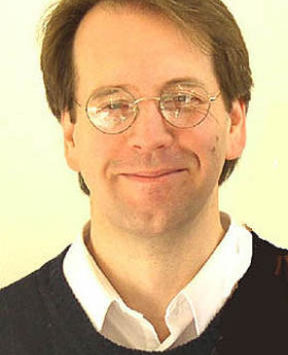Im seeing the Internet from a totally different perspective at the end of 2005 than I did at the end of 2004. The difference is not in the direction of the trending pattern that Im seeing. Rather, its from the perspective of a guy who needs more from the real world and less from the virtual world. This feeling is having a significant impact on how I see the future of the Internet. I dont believe that Im alone.
The Web and the Internet are maturing and becoming even more than any of us imagined five years ago. Yet it seems less in some ways. The less is that the deeper I get into it, the more I feel disconnected from the other 50 percent or more who still do not understand, or even care to understand, the online world. In 1999, I thought that certainly by 2005 everyone would get the online world and that I would not be meeting people every day who just are not plugged into the Web and the Internet yet.
I discussed the latest trends on my WebTalk Radio program starting back in late 1999, and the dotcom boom came — and popped. I believe that we are now in the midst of a new Internet boom time. This smaller Internet boom time has been building for the past two years. The difference this time is that the new companies and ideas really have a fair chance to become real and profitable.
While I am still excited about the Internet and the Web, I have to say that I am getting a little burned out on the fast pace of change and growing expectations of immediacy of news and information online. I think it is challenging all of us Net citizens to keep up, as it can be unhealthy to keep up at the ever faster expected pace. Maybe I am showing my age, but Im finding that what is being created now has a shorter and shorter life span. Long-term value of online information is on the decline.
You ask, Why is this important? Its important because it takes many hours and research to create valuable information. This information has value, but this value diminishes very quickly because so many other people are creating very similar topic content. One example is the yearly ritual of year-end predictions. I have heard many people say there are just too many 2006 technology prediction articles being written. If everyone wrote a Top 10 trend prediction, then any one Top 10 list has less and less value. Everyone has their own opinion. Why would you read one top 10 list over another? I am thinking the value is linked to the writers online credibility and readership. My point is that if we have 100 credible futurists predicting the Top 10 list, then the value of each one is less to any one individual as the number grows to 200 prediction articles. I believe that in the past there were far fewer Top 10 lists, and each list had more impact and readers. Now for the same amount of work on the writers part, there is a diminishing value to any one top 10 list. I guess it gets down quickly to who was correct in his or her top 10 predictions.
That said, here are two of my predictions for the Internet in 2006:
NETIZEN CONTENT CREATION
The fuel that is driving the growth of the Internet and the Web is not content created by major media companies, but by people like you and me at the point of connection to the Internet. Examples are growing all around us online. Just see the list of smaller trends impacting this area: MySpace.com, Blogging, Flickr.com, Audio Podcasting, and now Video Podcasting.
DIGITAL MULTIMEDIA IN THE LIVING ROOM AND BEYOND
I believe that 2006 is the year for Internet-based television viewing. The challenge is whether it is based on the walled private network garden of Internet Protocol Television (IPTV), or if it will be based on the currently popular TiVo method. I am not sure that long-term consumer acceptance will follow the walled gardens of the current IPTV plans. I believe that the major cable providers will try and force IPTV services on to millions of TV viewers, but the viewer will decide on choice as more and more technology becomes available to consume digital media sharing on mobile devices and laptops. Examples are the Sling box and TIVO to Mobile Media Player. The other ground-breaking move is the growing popularity of the XBox 360 as a development in digital entertainment and central home entertainment servers. See the Xbox 360 lead the way to a whole new living room experience with television over the next year.
Next Friday in the Index, the remaining predictions for the Internet in 2006. Rob Greenlee is host of the WebTalk Radio Show, a Tacoma-based nationally syndicated radio and webcast show featuring technology news and interviews.






